In Monroe County, Michigan, a quiet revolution in road construction has turned deteriorated infrastructure into a national model of innovation, sustainability and community pride.
It is a common scene across the country; county roads like Samaria Road, also known as County Road 151, suffered from years of insufficient infrastructure funding. But thanks to the vision and dedication of the Monroe County Road Commission (MCRC), Samaria Road was able to have a dramatic restorative transformation — earning national awards and leaving a lasting legacy.
Over the last ten years, the county has adopted pavement recycling and preservation practices that have not only made their road network more sustainable for their budget, but also the environment.
Open to New Paving Techniques
One of the turning points for the county came in 2014, when reconstruction planning began for a severely deteriorated ten-mile section of Samaria Road. A limited $5 million budget for the project meant that leadership was open to exploring all reconstruction options, including recycling techniques.
The county project team worked closely with Bruce Wehr, sales representative with Asphalt Materials, Inc. (AMI), and engineers with the Heritage Research Group (HRG) to determine that AMICYCLE™ Full Depth Reclamation (FDR) was the best fit. This option was the most suitable for the project due to its lower cost compared to traditional reconstruction methods, while maintaining the same level of resilience.
Monroe County wasn’t new to recycling techniques. In fact, the county had prior experience with typical FDR and Cold In-Place Recycling (CIR) projects. But Samaria Road presented a different opportunity — it was larger, more complex and posed a unique challenge: what do you do with 40,000 tons of concrete?
Rather than seeing this as a setback, the county saw it as an opportunity to take their recycling efforts to the next level. They embraced the proposed solution, leveraging their existing reclaimed asphalt pavement (RAP) stockpile to replace the concrete, which could then be utilized for additional projects, further reducing costs and environmental impact.
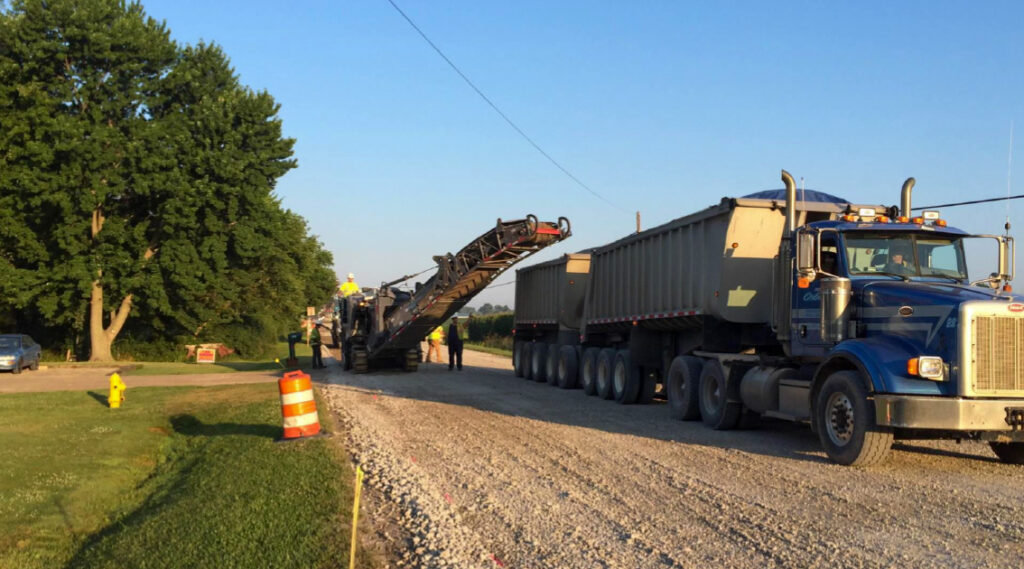
When construction began, the top inches of concrete pavement were rubblized right down to the existing aggregate base. Underlying structural challenges were addressed and an engineered recycling emulsion, designed by HRG specifically for this project’s unique blend of RAP and existing rock source milling, was laid down eight inches thick and topped with a hot mix asphalt overlay. This created a road built to last while also meeting the project’s budget restrictions.
The results were so impressive, that now, ten years later, the Asphalt Pavement Alliance awarded Monroe County the 2024 Perpetual Pavement by Conversion Award for the Samaria Road project. Previously, the rebuilt Samaria Road contributed to Monroe County earning the Asphalt Recycling & Reclaiming Association’s 2016 Award for Excellence in full-depth reclamation and recognition with the 2015 Asphalt Pavement Association of Michigan Award of Excellence honors.
From the Asphalt Pavement Alliance:
“‘Perpetual Pavement’ is the name coined to describe a type of asphalt pavement designed, built and maintained to last indefinitely without major structural rehabilitation or repair. Because there are no bottom-up distresses, structural integrity remains intact indefinitely. These long-lasting asphalt structures can be economically maintained by preserving and renewing just the top layer to address near surface distresses, never needing significant rehabilitation or reconstruction.”
Although constructing a perpetual pavement was not the original intent of the rebuild, a well-designed solution contributed to this successful achievement.
Ida West Road
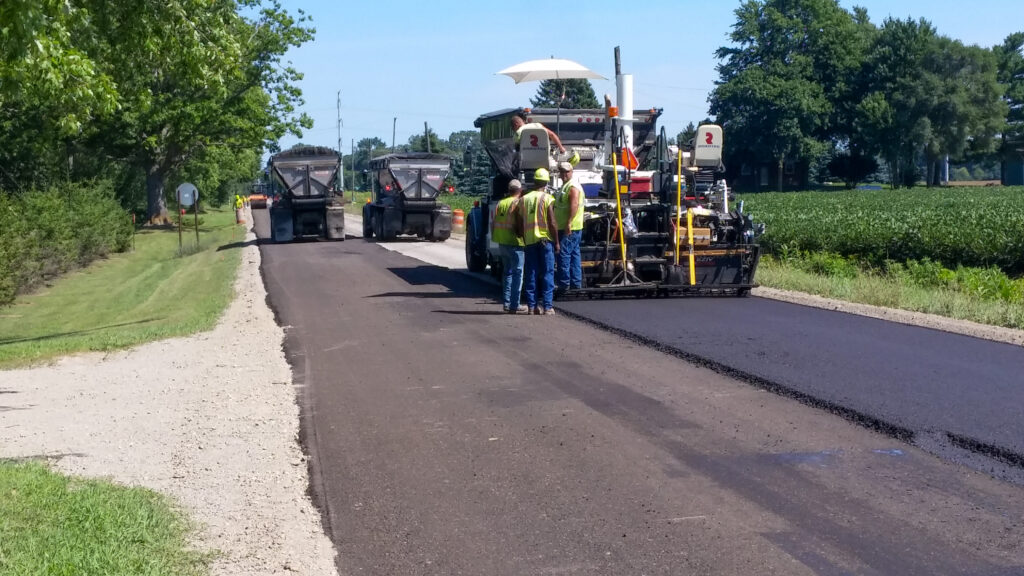
The success of Samaria Road encouraged MCRC planners to look again at recycling applications in 2016 when the need to rehabilitate Ida West Road arose. As one of the original 1930’s WPA roads, the 4.5-mile stretch had decades of repaving on top of it that needed to be managed. The solution was to mill off the asphalt, but rather than dispose of those millings, the county recycled it.
The original concrete pavement was then sealed with a heavy polymer chip seal; the intermediate course was 100% of the original asphalt millings that were recycled using cold central plant processing. The road was then topped with a surface course hot mix asphalt (HMA).
Tailored Recycling Treatments – Options for Every County
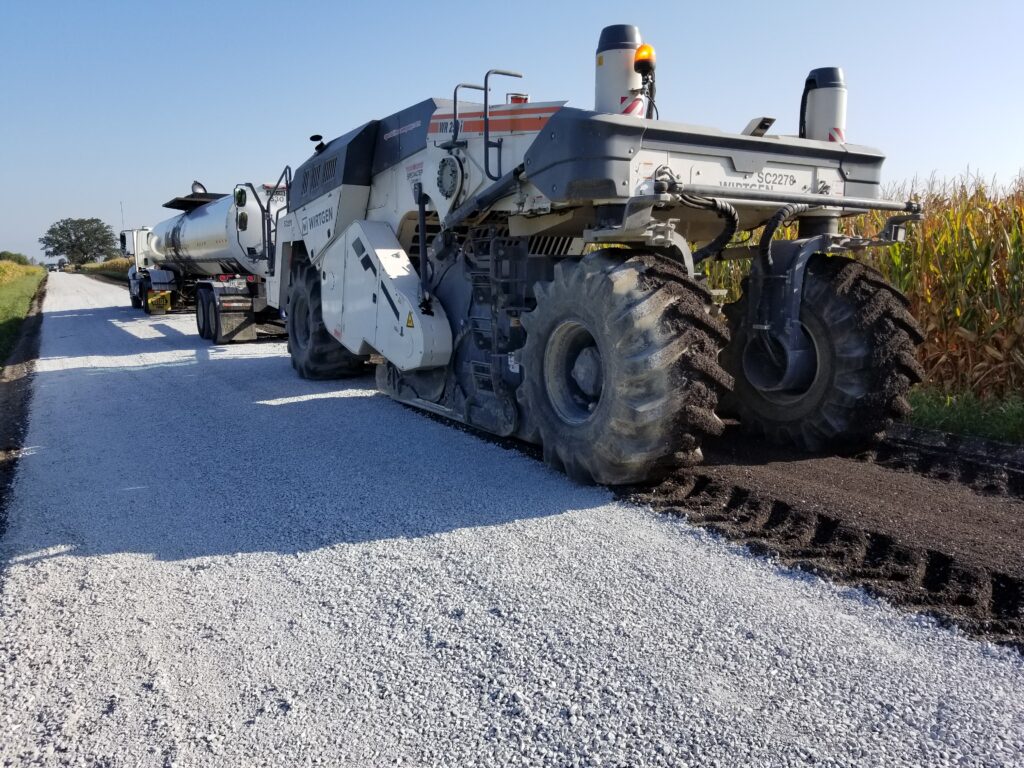
Recycling treatments that utilize RAP have been gaining traction across North America and beyond. This is due to the high-quality outcomes these solutions maintain while keeping costs down by reusing existing materials that an agency already owns. There are also environmental advantages to paving at lower temperatures, which reduces greenhouse gas emissions.
FDR, CIR and Cold Central Plant Recycling (CCPR) solutions will always be tailored to the specific project, accounting for pavement conditions, traffic loads and other considerations unique to a road. Consulting engineers and experts like those at AMI and HRG can assist with evaluating factors and make recommendations on these types of applications, leveraging their years of experience with successful projects like those in Monroe County.
A Lasting Legacy
Monroe County has invested in hundreds of miles of road improvements that utilize asphalt recycling, rehabilitation and preservation techniques. In doing so, results have exceeded their goals and expectations.
Behind many initial projects was the late Scott Assenmacher, a beloved MCRC engineer whose passion for innovation and community service shaped many of these projects. In a heartfelt tribute, over 10 miles of Samaria Road were dedicated in his name, ensuring his legacy lives on in the very pavement he helped perfect.

The story of Monroe County’s roads is about more than just asphalt and awards — it’s a story of turning “rags to riches,” of transforming forgotten byways into vital, resilient corridors that serve the community and inspire the nation.
Curious to see if AMICYCLE™ recycling applications could be the solution for your next road rehabilitation project? Schedule a ride along road evaluation with our sales team marketing@asphalt-materials.com.
——-
See related articles:
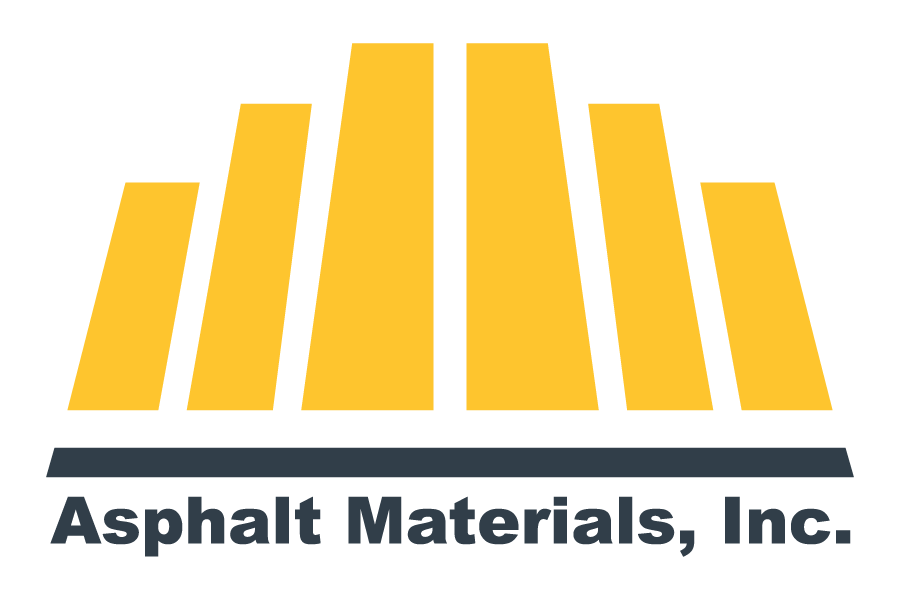
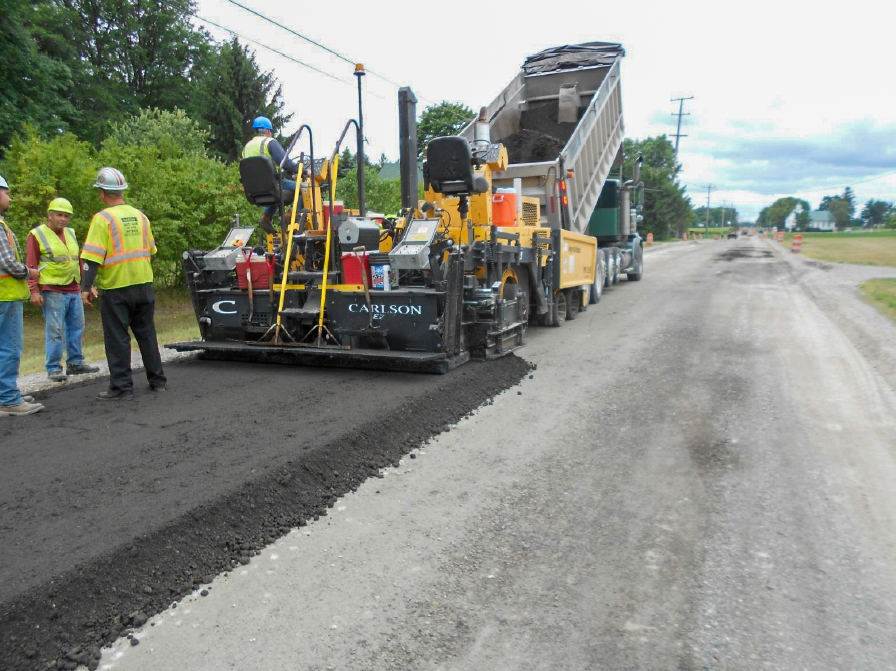
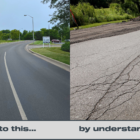
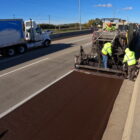

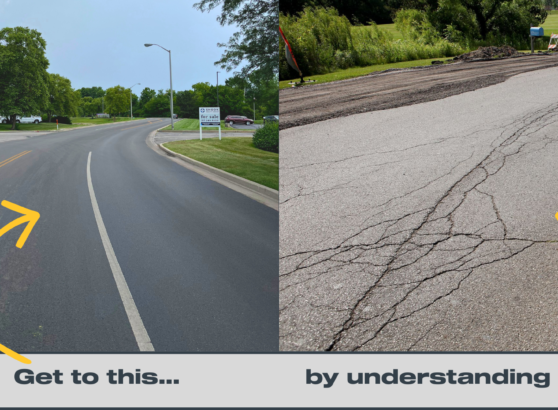
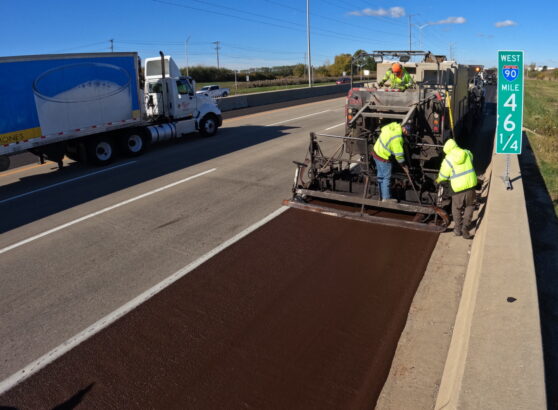

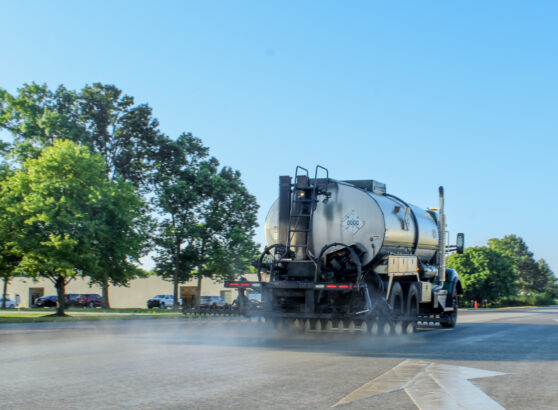
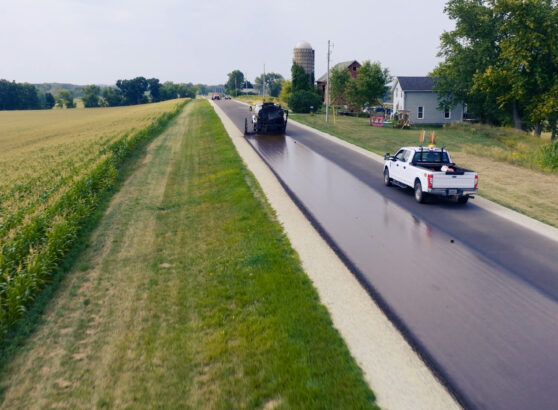

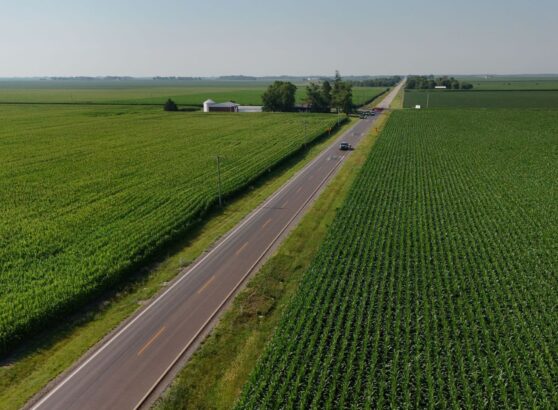
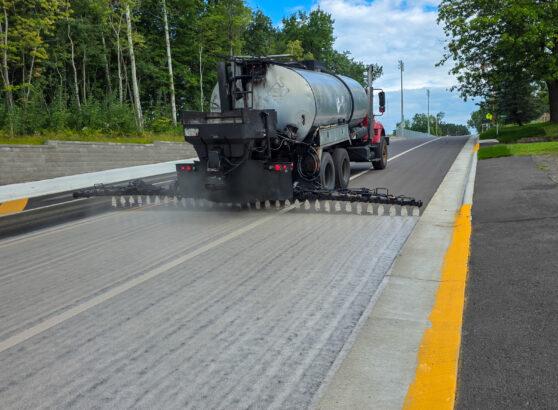
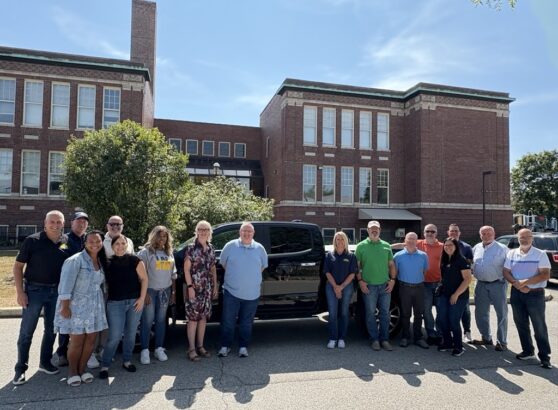
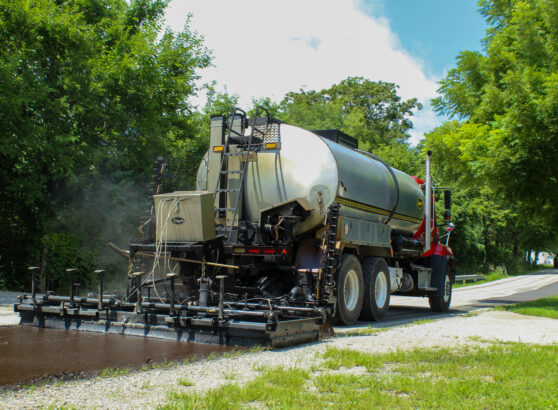

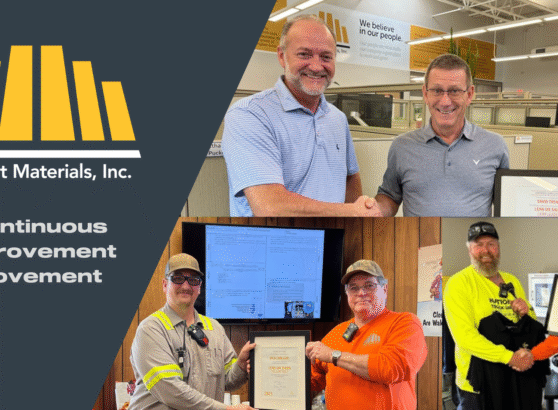
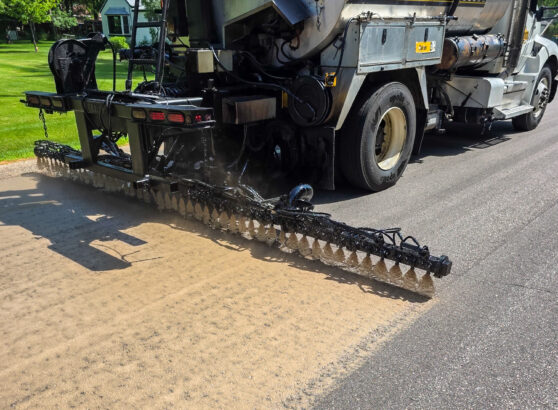



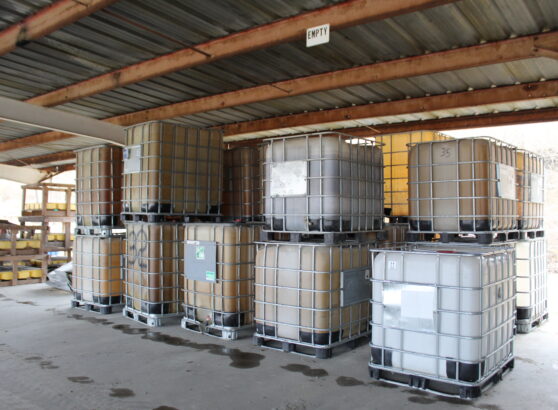
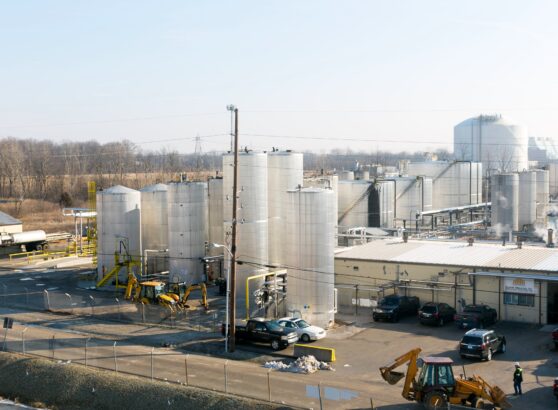
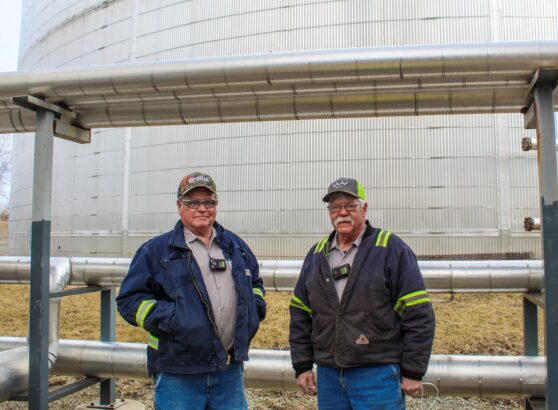
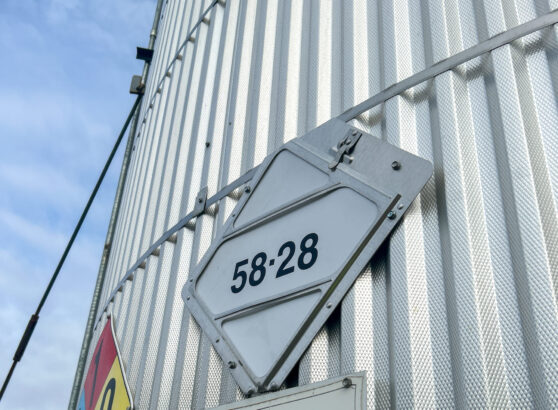
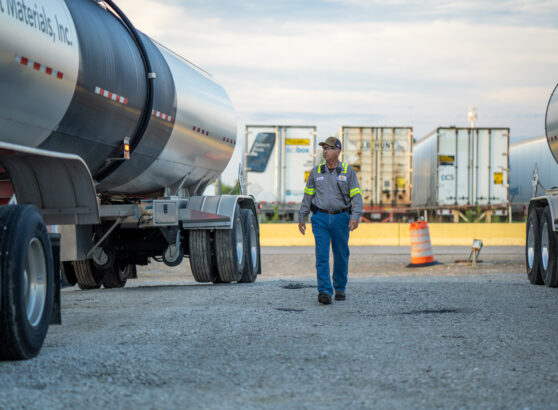

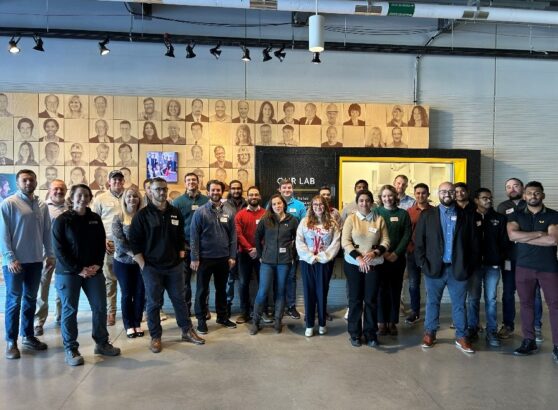
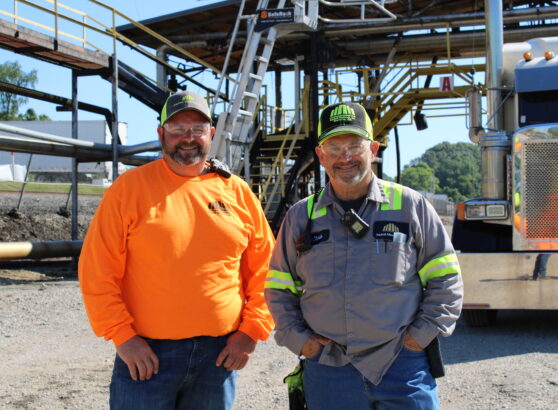
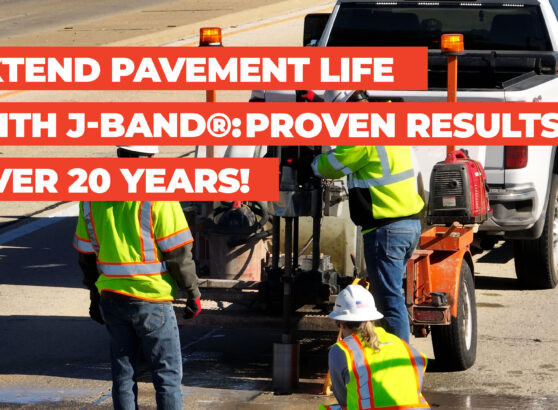
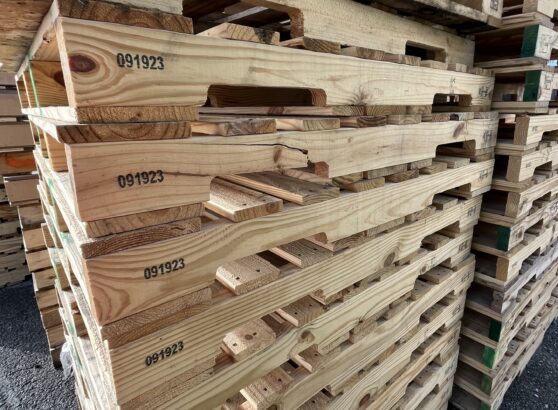
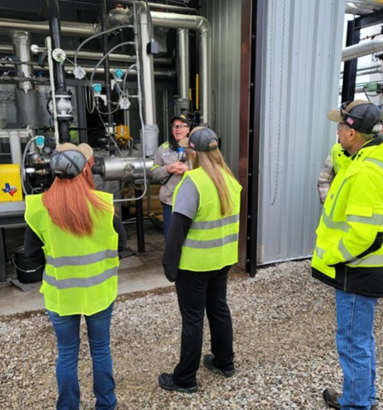









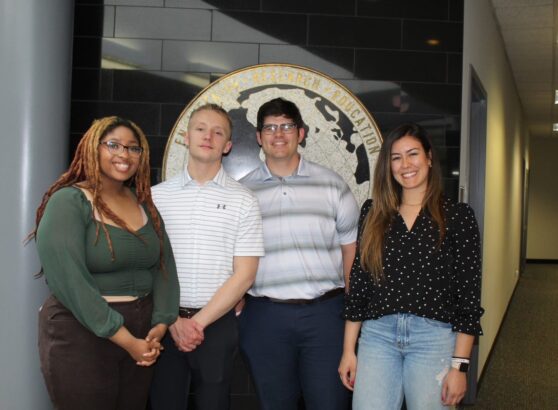

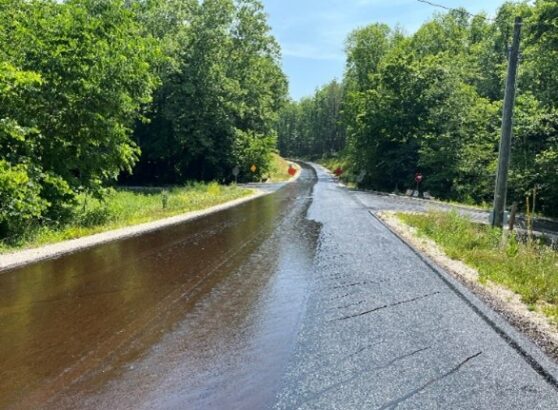

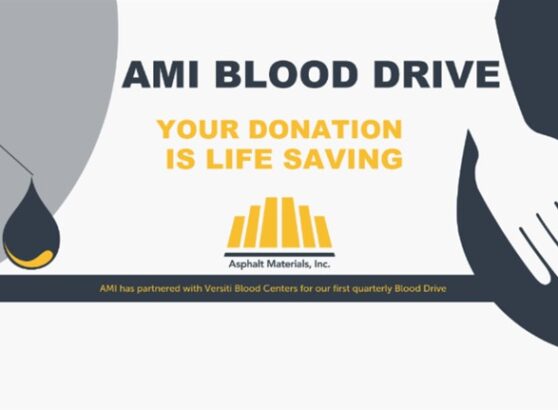

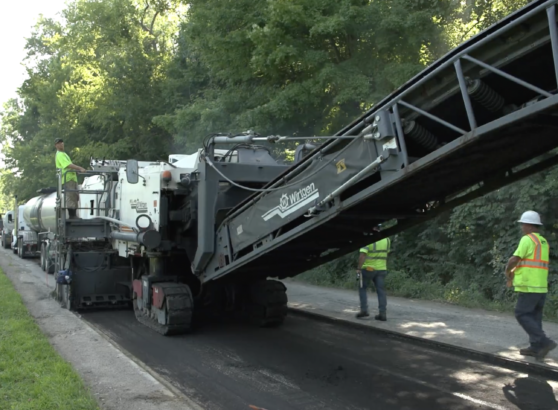
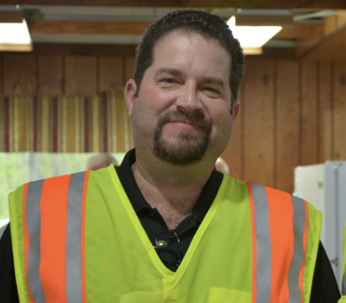
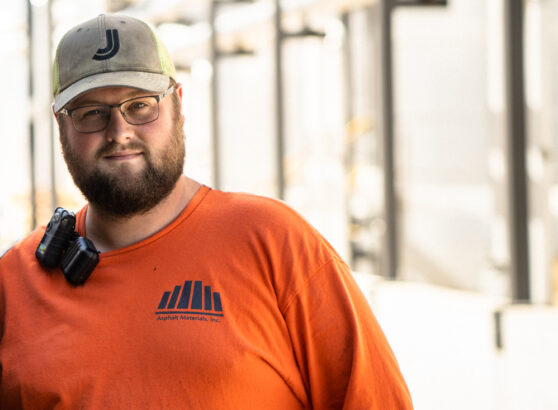






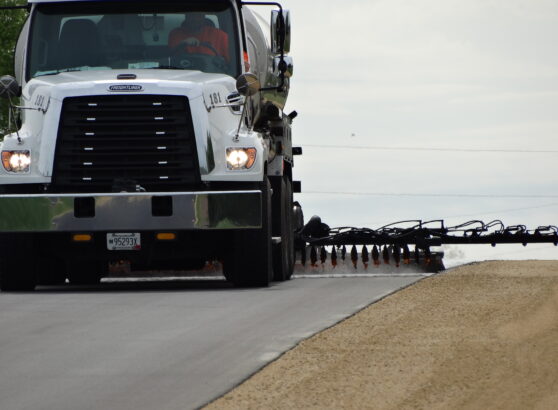

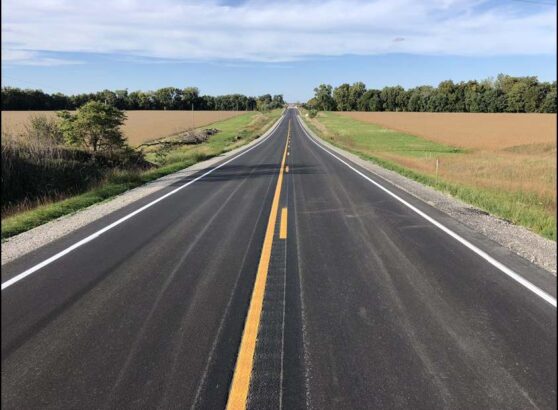


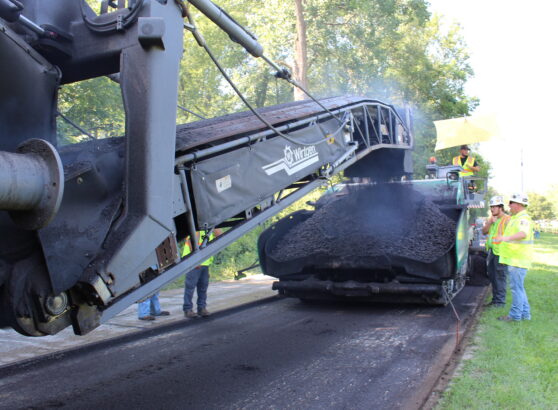

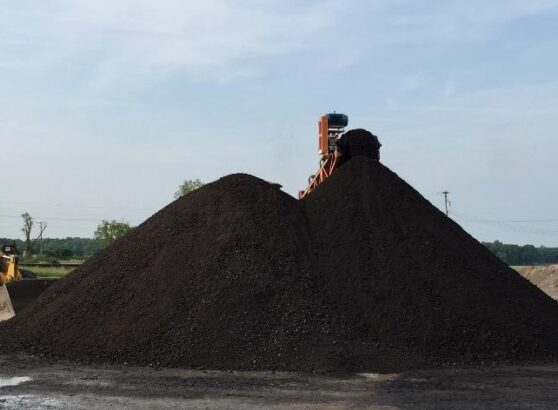

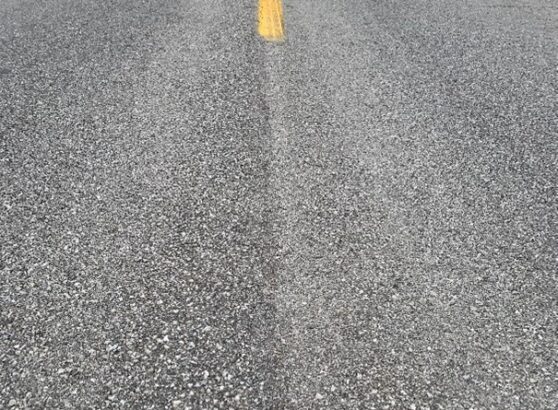


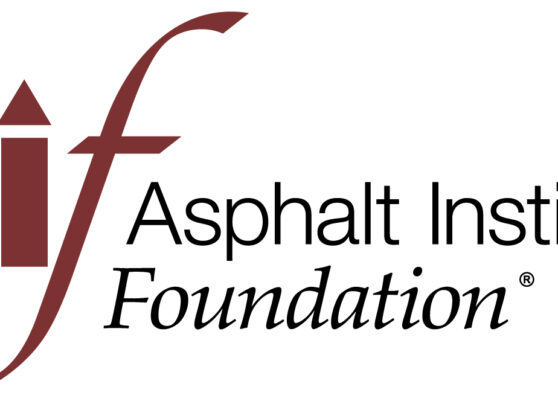




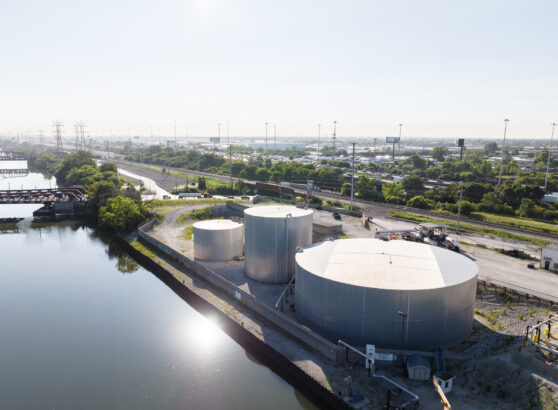




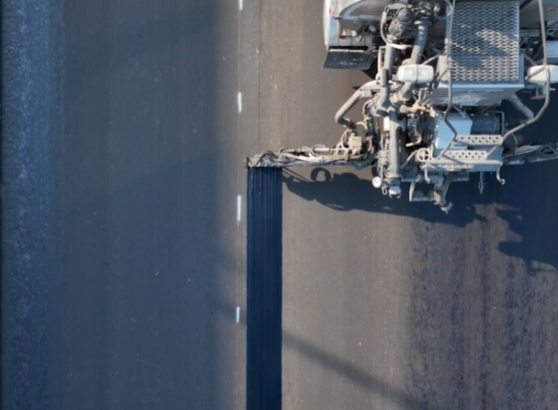


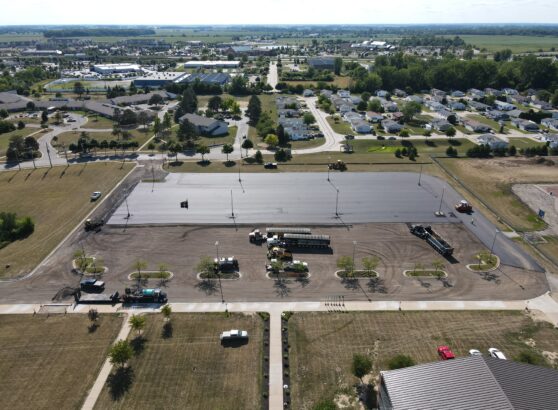



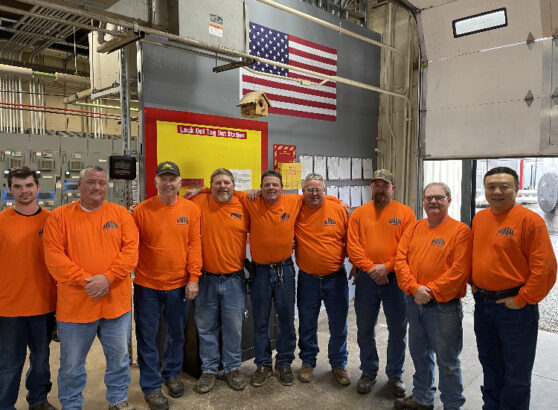

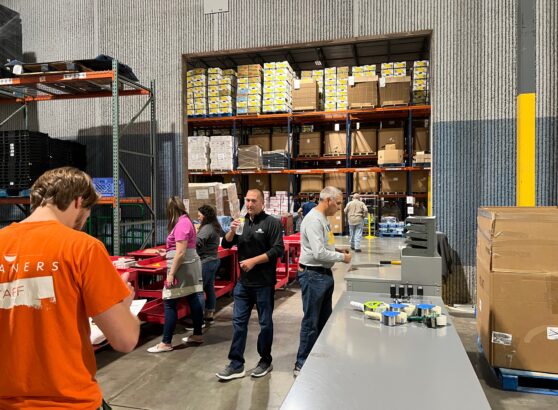


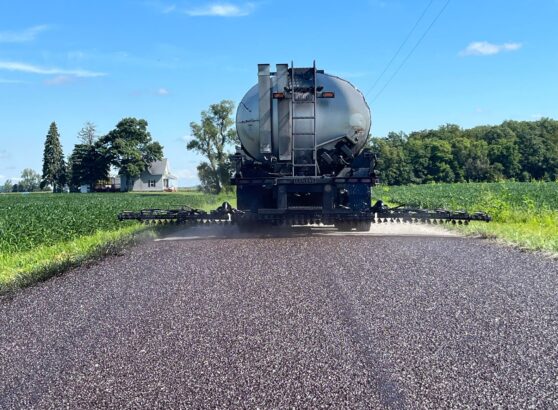



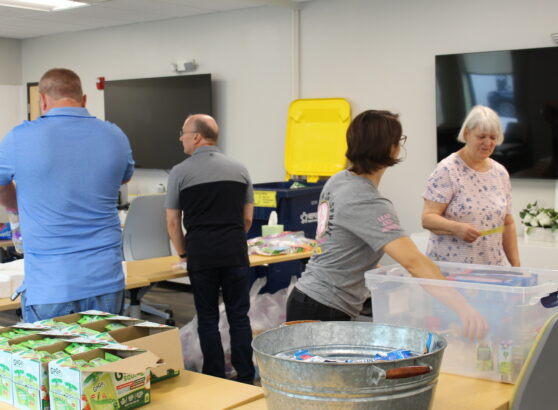
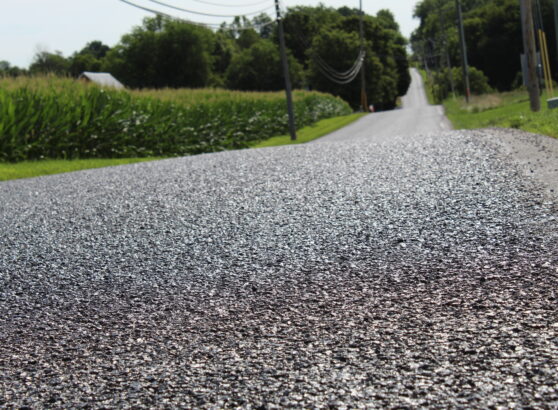
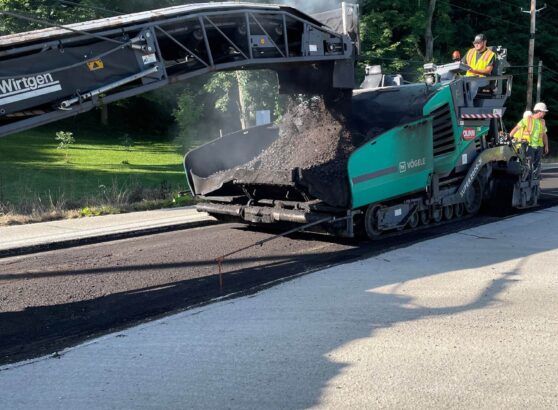


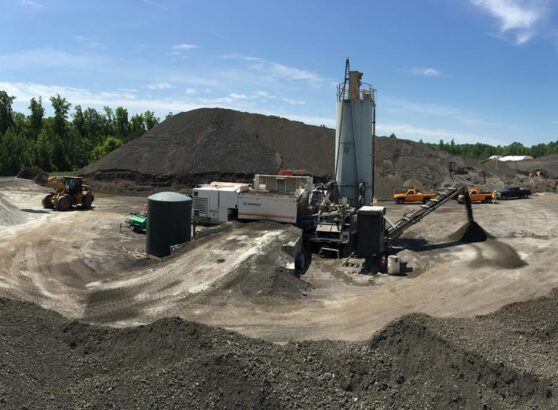



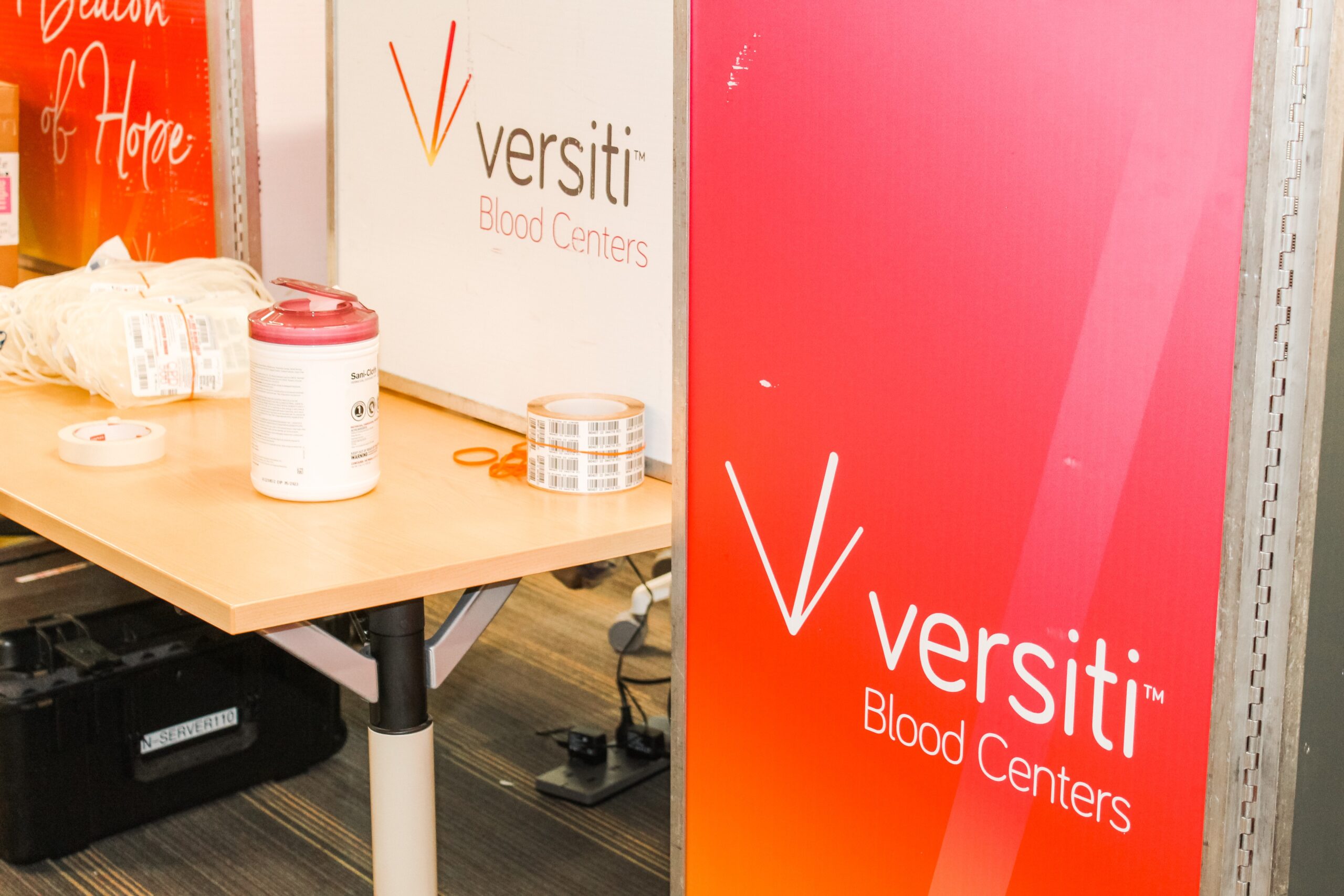


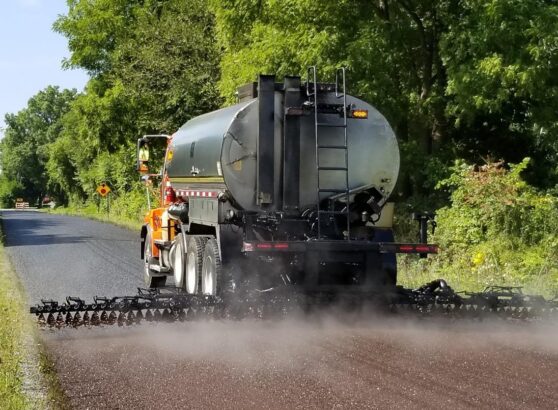

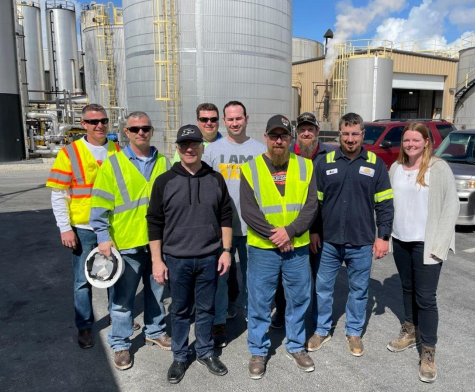

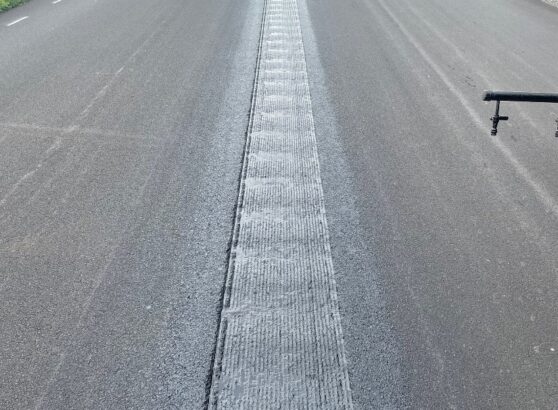
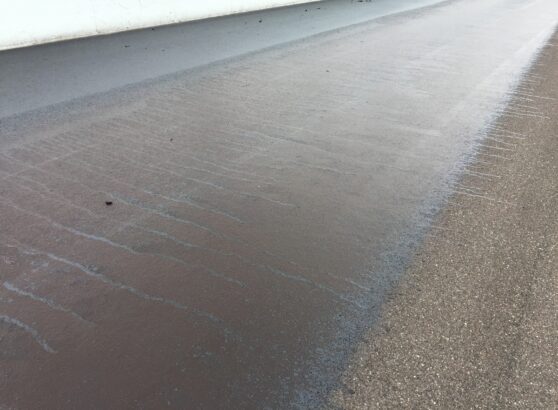




















Recent Comments